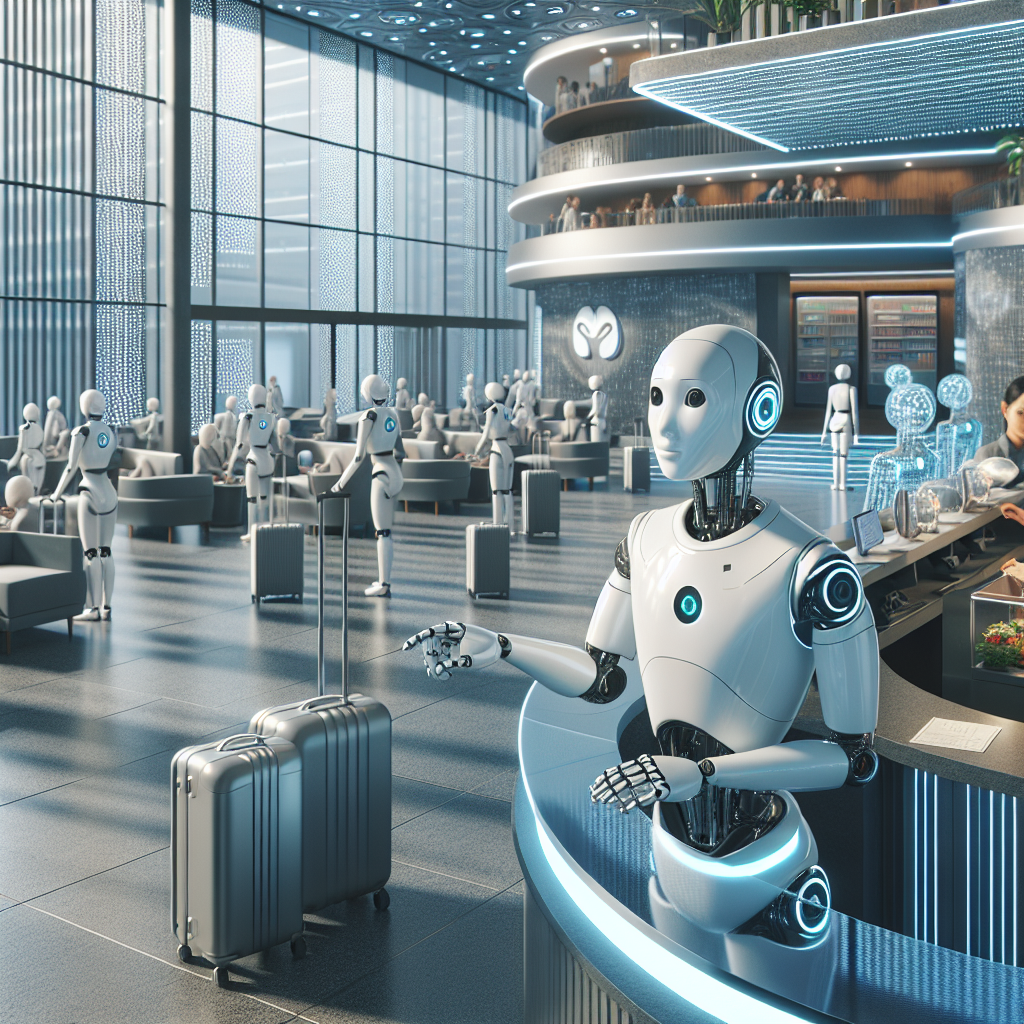The hospitality industry has seen significant advancements in technology over the past few years, with the rise of AI-powered virtual assistants becoming increasingly prevalent. These virtual assistants are revolutionizing the way hotels, restaurants, and other hospitality businesses interact with their guests, providing personalized and efficient service that enhances the overall guest experience.
AI-powered virtual assistants are computer programs that use artificial intelligence to perform tasks that would typically require human intelligence. These virtual assistants can perform a wide range of functions, from answering basic questions and providing information to guests, to booking reservations, processing payments, and providing personalized recommendations based on guest preferences.
One of the main benefits of AI-powered virtual assistants in the hospitality industry is the ability to provide 24/7 customer service. Guests can interact with virtual assistants at any time of day or night, allowing them to get the information they need quickly and efficiently without having to wait for a human agent to be available. This can help improve guest satisfaction and loyalty, as guests appreciate the convenience and responsiveness of virtual assistants.
Another key benefit of AI-powered virtual assistants is their ability to provide personalized recommendations and suggestions to guests based on their preferences and previous interactions with the business. Virtual assistants can analyze data such as past bookings, dining preferences, and feedback to provide tailored recommendations that enhance the guest experience and increase revenue for the business.
AI-powered virtual assistants can also help hospitality businesses streamline their operations and reduce costs. By automating routine tasks such as answering common guest questions, taking reservations, and processing payments, virtual assistants can free up staff members to focus on more complex and high-touch interactions with guests. This can help businesses operate more efficiently and improve overall profitability.
Many hotels and restaurants are already leveraging AI-powered virtual assistants to enhance the guest experience. For example, some hotels have implemented virtual assistants in guest rooms that can provide information about hotel amenities, local attractions, and dining options, as well as control room features such as lighting and temperature. Restaurants are also using virtual assistants to take reservations, answer questions about the menu, and provide personalized recommendations to diners.
As the technology behind AI-powered virtual assistants continues to advance, we can expect to see even more innovative applications in the hospitality industry. For example, some businesses are exploring the use of voice-activated virtual assistants that can respond to guest commands and requests using natural language processing technology. This can help create a more seamless and intuitive guest experience that feels more like interacting with a human concierge.
Overall, the rise of AI-powered virtual assistants in the hospitality industry is transforming the way businesses interact with guests and enhancing the overall guest experience. By leveraging the power of artificial intelligence, businesses can provide more personalized and efficient service that drives guest satisfaction and loyalty, while also streamlining operations and reducing costs.
FAQs:
Q: How do AI-powered virtual assistants differ from traditional chatbots?
A: AI-powered virtual assistants use artificial intelligence technology to perform tasks that require human intelligence, such as understanding natural language, context, and providing personalized recommendations. Traditional chatbots, on the other hand, are rule-based programs that follow a predetermined set of rules and responses.
Q: Are AI-powered virtual assistants secure?
A: AI-powered virtual assistants use advanced security measures to protect sensitive guest information and ensure data privacy. Businesses should work with reputable vendors and implement best practices for data security to ensure the safety of guest data.
Q: How can businesses measure the effectiveness of AI-powered virtual assistants?
A: Businesses can measure the effectiveness of AI-powered virtual assistants by tracking key performance indicators such as guest satisfaction ratings, response times, conversion rates, and cost savings. Analyzing these metrics can help businesses optimize their virtual assistant strategies and improve overall performance.
Q: What are some common challenges associated with implementing AI-powered virtual assistants in the hospitality industry?
A: Some common challenges include ensuring seamless integration with existing systems, training staff to work alongside virtual assistants, and managing guest expectations regarding the capabilities of virtual assistants. Businesses should carefully plan and execute their virtual assistant strategies to overcome these challenges and maximize the benefits of AI technology.

